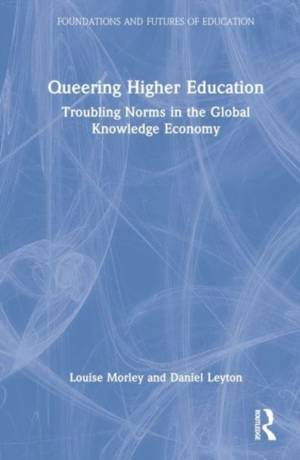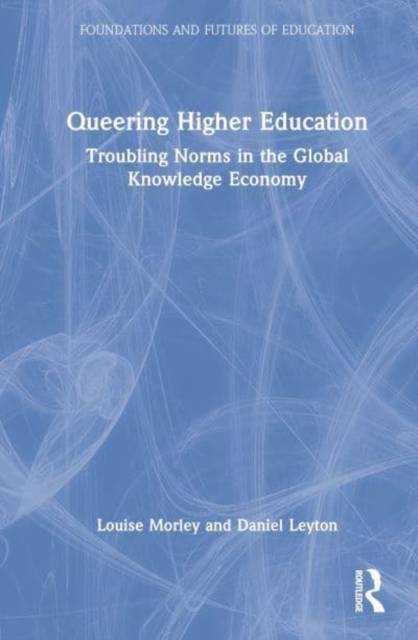
- Afhalen na 1 uur in een winkel met voorraad
- Gratis thuislevering in België vanaf € 30
- Ruim aanbod met 7 miljoen producten
- Afhalen na 1 uur in een winkel met voorraad
- Gratis thuislevering in België vanaf € 30
- Ruim aanbod met 7 miljoen producten
Queering Higher Education
Troubling Norms in the Global Knowledge Economy
Louise Morley, Daniel LeytonOmschrijving
This interdisciplinary and international book subjects key areas of inclusion in the global knowledge economy to critical scrutiny from queer perspectivism. Drawing on empirical data from diverse international contexts including Chile, Finland, Japan, Malaysia, India, Afghanistan, Bangladesh, Nepal, Pakistan, Sri Lanka, Ghana, Tanzania, South Africa, and the UK, this book examines sites of affective antagonisms, fragility, and friction, and explores whether queer theory can provide alternative readings of contemporary pathways, pedagogical and research cultures, political economies, and policy priorities with higher education. Main themes covered include:
- The Global Knowledge Economy and Epistemic Injustice
- Decolonisation
- Internationalisation
- Feminist Leadership
- Affirmative Action
- Queering the Political Economy of Neoliberalism
- Digitalisation of academic work
Both comparative and illustrative, this key text provides a comparative analysis that recognises epistemic diversity, multiplicity of experiences, and, importantly, the effect of comparative reason in constructing stratified universities' world fields and excluded and marginal academic experiences. It also takes into account the colonial historical entanglements in the ongoing formation and disavowal of the university and academic labour.
Queering Higher Education: Troubling Norms in the Global Knowledge Economy is ideal reading for all those interested in queer theory and how it relates to higher education.
Specificaties
Betrokkenen
- Auteur(s):
- Uitgeverij:
Inhoud
- Aantal bladzijden:
- 194
- Taal:
- Engels
- Reeks:
Eigenschappen
- Productcode (EAN):
- 9781032190334
- Verschijningsdatum:
- 30/12/2022
- Uitvoering:
- Hardcover
- Formaat:
- Genaaid
- Afmetingen:
- 156 mm x 233 mm
- Gewicht:
- 359 g

Alleen bij Standaard Boekhandel
Beoordelingen
We publiceren alleen reviews die voldoen aan de voorwaarden voor reviews. Bekijk onze voorwaarden voor reviews.











